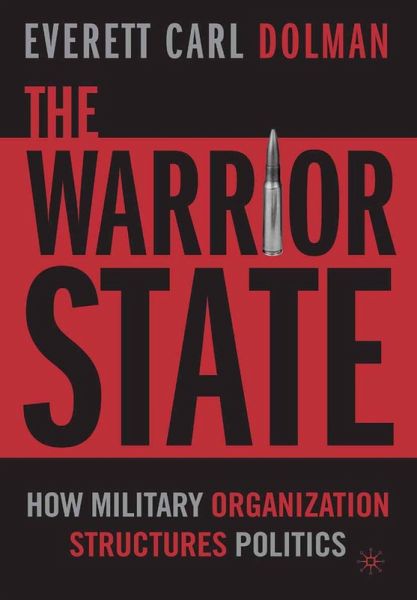
The Warrior State (eBook, PDF)
How Military Organization Structures Politics
Versandkostenfrei!
Sofort per Download lieferbar
40,95 €
inkl. MwSt.
Weitere Ausgaben:

PAYBACK Punkte
20 °P sammeln!
Putting into question the conventional view that the military is detrimental to democratic development, Dolman provides a multifaceted examination of the institutional incentives of the military and its relations with civilian authorities. Drawing on classical political theory, a wide range of historical examples, and statistical findings, The Warrior State argues that the military can facilitate democracy as the result of specific norms and conditions that focus on individual action. Ironically, this may be best inculcated through a focus on the offensive, precisely the military doctrine comm...
Putting into question the conventional view that the military is detrimental to democratic development, Dolman provides a multifaceted examination of the institutional incentives of the military and its relations with civilian authorities. Drawing on classical political theory, a wide range of historical examples, and statistical findings, The Warrior State argues that the military can facilitate democracy as the result of specific norms and conditions that focus on individual action. Ironically, this may be best inculcated through a focus on the offensive, precisely the military doctrine commonly seen as most likely to result in international conflict. The paradox of offensive strategies possibly increasing international conflict while also enhancing democracy, which is supposed to decrease such conflict, from a core of this provocative book.
Dieser Download kann aus rechtlichen Gründen nur mit Rechnungsadresse in A, B, BG, CY, CZ, D, DK, EW, E, FIN, F, GR, HR, H, IRL, I, LT, L, LR, M, NL, PL, P, R, S, SLO, SK ausgeliefert werden.












